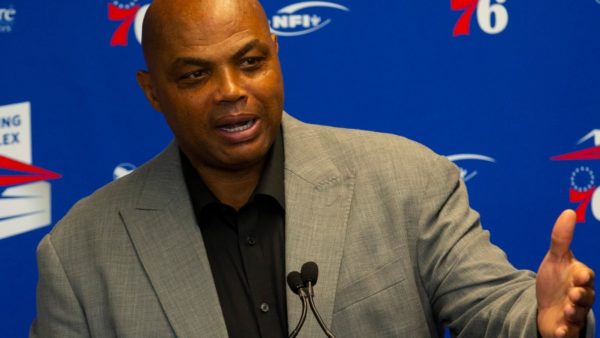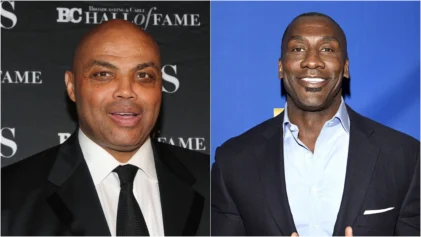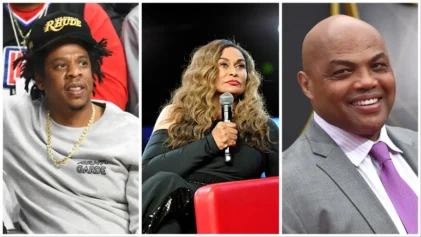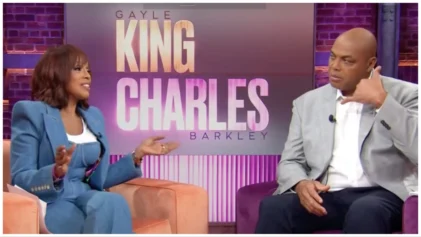Charles Barkley says that he isn’t one for symbolic gestures when it comes to how professional sports leagues are responding to social justice issues, and he feels concrete, measurable steps need to be taken instead.
The retired NBA player and now TNT analyst spoke with CBNC on Friday, July 10, about the NBA’s response to end systemic racism. His interview came nearly three weeks before the league resumes on July 30 in Orlando, Florida, after being suspended as the coronavirus began to spread in March.

“What’s happening now is we’re turning it into a circus,” said Barkley at the 6:55 mark of the phone interview. “Instead of talking about racial equality, racial justice and economic justice, we spend all our time worrying about who’s kneeling and who’s not kneeling, what things are being said on buses, what’s being said on jerseys. I think we’re missing the point.”
“We need police reform, prison reform. Those are No. 1 and No. 2 things we need to focus on,” he added. “We need the cops, good cops out there policing bad cops. … My concern is this is turning into a circus instead of trying to do some good stuff.”
The NBA and the National Basketball Players Association union agreed earlier this month that social justice messages can be worn above players’ numbers on the back of their jerseys.
The approved messages are Black Lives Matter; I Can’t Breathe; Say Their Names; Justice; Peace; Equality; Freedom; Say Her Name; See Us; Hear Us; Respect Us; Enough; Justice Now; Power to the People; Sí Se Puede (Yes We Can); Vote; Liberation; Mentor; See Us; Hear Us; Respect Us; Love Us; Listen; Listen to Us; Stand Up; Ally; Anti-Racist; Speak Up; How Many More; Group Economics; Education Reform; and I Am A Man.
ESPN reports that as of Wednesday, July 8, 285 of the 350 NBA players scheduled to play in Orlando chose to wear a social justice message, while the rest will wear their names. Perhaps ironically, LeBron James, who many consider to be the face of the league, opted not to wear a social justice message on his uniform.
“I actually didn’t go with a name on the back of my jersey,” he told reporters during a videoconference call on Saturday, July 11. “It was no disrespect to the list that was handed out to all the players. I commend anyone that decides to put something on the back of their jersey.”
“It’s just something that didn’t really seriously resonate with my mission, with my goal,” added James. “I don’t need to have something on the back of my jersey for people to understand my mission or know what I’m about and what I’m here to do.”
Other professional sports leagues, including the NFL, have shown how they’re supporting the Black Lives Matter movement since protests began in May after George Floyd died.
The NFL Players Association confirmed earlier this month that “Lift Every Voice and Sing,” otherwise known as the Black national anthem, will be played before every NFL game during Week 1, prior to “The Star-Spangled Banner.” It’s a decision that some Black people have already criticized.
“It’s blatant pandering to public sentiment,” said Rodney Coates, a sociologist and professor at Miami University in Ohio in an interview with NBC News. “It would be a publicity stunt. There are so many ways to show its commitment. If it were serious it would open pathways for opportunities in a number of ways. But a song? No.”
Barkley didn’t touch on the NFL’s decision to play “Lift Every Voice and Sing” but he suggested that he’s not a fan of how social justice issues and politics have bled into sports today.
“Obviously, we are in a divided country,” he said. “And sports used to be a place where fans can go and get away from reality, and now it’s such a mixture. … The fans are at such a disadvantage because they’re going through the pandemic, and they don’t want to see a bunch of rich people talking about stuff all the time.”


